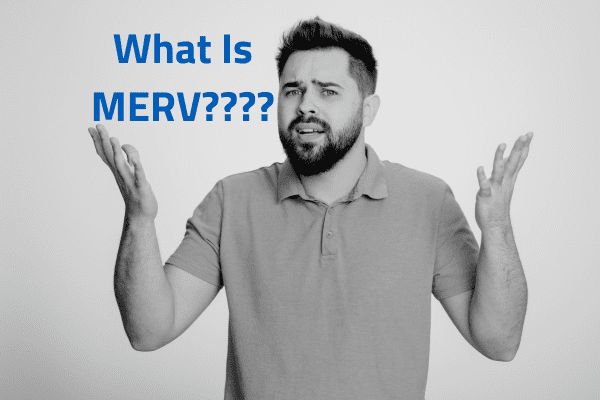As a commercial HVAC/R technician, your role is crucial in ensuring that HVAC/R systems operate efficiently, providing a comfortable and safe environment for businesses and large facilities. One key component of HVAC/R systems that is often overlooked by building owners but should never be neglected by technicians is the air filtration system. The effectiveness of these filters is typically measured by the MERV rating—a vital standard that can impact indoor air quality, system efficiency, and even the lifespan of equipment like commercial HVAC/R compressors. But what exactly is a MERV rating, and why is it essential for you as a commercial HVAC/R technician?
What is a MERV Rating?
MERV stands for Minimum Efficiency Reporting Value. Established by ASHRAE (the American Society of Heating, Refrigerating, and Air-Conditioning Engineers), the MERV rating is a numerical value assigned to an air filter based on its ability to trap and filter airborne particles of varying sizes. The scale ranges from MERV 1 to MERV 16, with higher numbers indicating more effective filtration.
The primary function of air filters is to capture contaminants such as dust, pollen, mold spores, bacteria, and other airborne particles that would otherwise circulate through the building’s HVAC/R system. Proper air filtration is essential for maintaining good indoor air quality (IAQ), which in turn affects the health, comfort, and productivity of building occupants.
For commercial HVAC/R systems, especially those installed in hospitals, data centers, and office buildings, the MERV rating of filters plays a critical role in balancing air quality with system efficiency.
How the MERV Rating Scale Works
The MERV scale is broken down into several ranges, with each category suited for specific applications and environments. Here’s a breakdown of the various ranges and their typical applications:
- MERV 1 to 4: These filters are typically found in residential window air conditioning units or basic industrial settings. They can filter large particles like pollen, dust mites, and fibers. However, they are not ideal for most commercial HVAC/R systems, as they offer minimal filtration and would not adequately protect sensitive equipment like your commercial compressor or ensure high-quality air.
- MERV 5 to 8: Filters in this range are commonly used in residential and light commercial buildings. They can capture particles such as mold spores, dust, and pet dander. For commercial HVAC/R systems in spaces like warehouses or factories, a MERV 5-8 filter may be sufficient, but it still won’t provide high protection for indoor air quality or protect more sensitive HVAC/R components.
- MERV 9 to 12: This is where things start to get more relevant for commercial HVAC/R systems. Filters in this range are suitable for hospitals, laboratories, and offices because they capture smaller particles, including fine dust, smoke, and even some bacteria. They help protect compressors and other sensitive commercial HVAC components by preventing more harmful particles from circulating through the system.
- MERV 13 to 16: These filters are ideal for environments that require superior air quality, such as hospitals, clean rooms, or high-end commercial buildings, such as state-of-the-art data centers. They can filter very fine particles like viruses, bacteria, and even some fumes. For technicians, installing filters in this range can help reduce the strain on commercial HVAC/R compressors, leading to fewer breakdowns and a longer lifespan for the equipment.
Why MERV Ratings Matter for Commercial HVAC/R Compressors
As an HVAC/R technician, you’re no stranger to the importance of maintaining system efficiency and protecting the core components of the system, including the compressor. Compressors are the heart of any HVAC/R system, and when they fail, it often leads to expensive repairs or replacement. The MERV rating of the air filters used in the system directly impacts compressor performance for several reasons:
- Reduced Contamination: Higher MERV-rated filters trap finer particles, meaning fewer contaminants enter the system. Dust, dirt, and other debris that bypass lower-rated filters can accumulate in the system, leading to clogs, reduced airflow, and an increased load on the compressor.
- Energy Efficiency: When air filters are more effective at trapping contaminants, airflow remains consistent and unimpeded. This allows the system to operate more efficiently, reducing the workload on the compressor. In contrast, dirty or inefficient filters cause the system to work harder to move air, leading to higher energy consumption and potential strain on the compressor.
- Longer Equipment Lifespan: Compressors that are less burdened by dirt and debris tend to last longer. A properly maintained HVAC/R system with high-efficiency filters (MERV 9 or above) will reduce wear and tear on the compressor, minimizing the risk of failure and ensuring that the system runs smoothly.
Selecting the Right MERV Rating for Commercial Applications
When replacing or upgrading air filters in commercial HVAC/R systems, it’s essential to consider the specific needs of the building and its occupants. For example, a hospital or data center will require filters with higher MERV ratings (MERV 13-16), whereas a warehouse or factory may be adequately served by filters in the MERV 5-8 range.
As an HVAC/R technician, understanding the role MERV ratings play in system performance will not only help you select the right filters but also prevent potential issues with compressors and other components down the line. It’s also crucial to educate your clients about the importance of regular filter replacement and system maintenance. Over time, even high-efficiency filters can become clogged, reducing airflow and forcing the system to work harder.
Get the Right MERV Rating for Your HVAC/R System and Compressor
The MERV rating of an air filter is much more than just a number; it is a vital specification that impacts the overall performance and longevity of commercial HVAC/R systems. By understanding MERV ratings and how they affect the system, you can better serve your clients, protect compressors, and ensure the efficient operation of HVAC/R systems in commercial buildings. Proper filter selection and maintenance are key to providing cleaner air, improved system performance, and longer equipment life.












